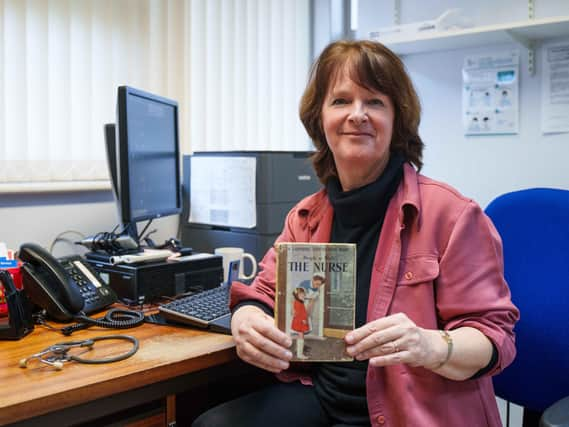Harborough GP shares experience of significant healthcare changes as she steps down after nearly four decades


A longstanding GP at Harborough Medical Centre has shared some significant changes in healthcare across nearly four decades in the field.
Dr Ruth Eardley has retired from the centre after 39 years.
The 63-year-old, who grew up in Loughborough, began her career at the surgery in 1985.
Advertisement
Hide AdAdvertisement
Hide AdOne of the most significant changes during her time with the NHS, said Dr Eardley, was life expectancy.
She said: “When I came to Harborough, life expectancy was about 75 years. Now it’s 83 which is a huge demographic shift. And one in three people smoked. Now it’s one in ten.”
She also praised advancing technology and the ability of drugs to treat a range of conditions: “Forty years ago we did not have statins or ACE inhibitors - for high blood pressure - or a host of other game-changing drugs and vaccines we now take for granted. And forget keyhole surgery - if you had your gallbladder out you got a massive scar and two months off work.”
Conversely, she described how earlier generations were less aware of serious conditions, now easily diagnosed and treated or sustained.
Advertisement
Hide AdAdvertisement
Hide AdShe said: “There seemed to be a kind of stoicism left over from the Second World War. I remember an elderly man apologising profusely, but he had a ‘nasty twinge’ in his chest - he was having a heart attack!”
On technology, she added: “Of course there were no computers or mobile phones. My husband would act as receptionist during on-call and keep a visiting log. Nobody seemed to worry about confidentiality and, in fact, he was a huge help to a suicidal patient who got him instead of me.”
One of her highlights was being on-call at the former Cottage Hospital, where she removed a foot-long splinter from somebody’s thigh. The patient had slipped during a barn dance at a church hall and slid along the wooden floor.
Finally, she added: “I’ve loved being a doctor, especially working alongside colleagues in the Primary Care Team.
“And, over the years, my patients have sustained me. Their examples of resilience and courage, their kindness and advice, have been hugely helpful.”